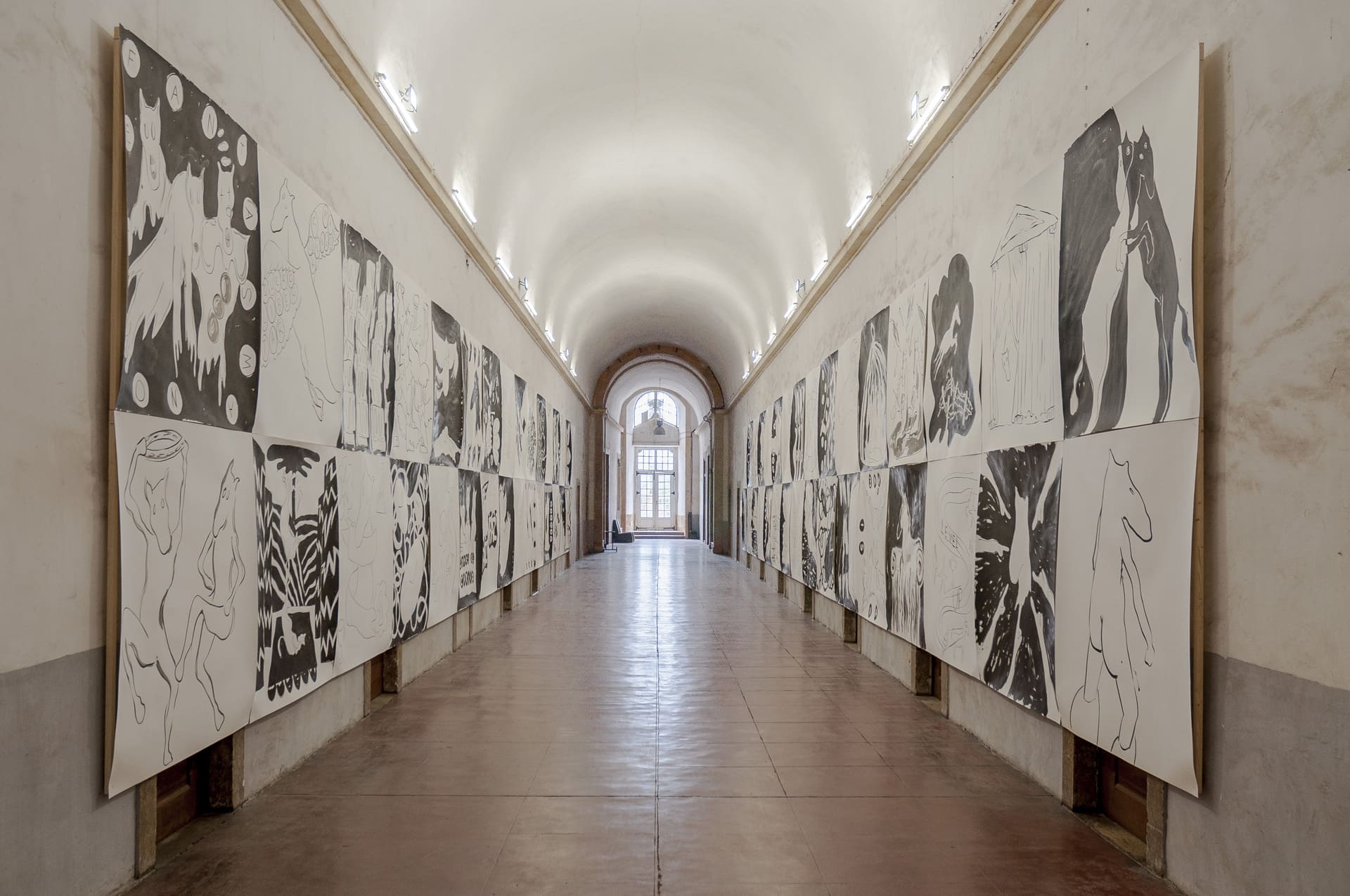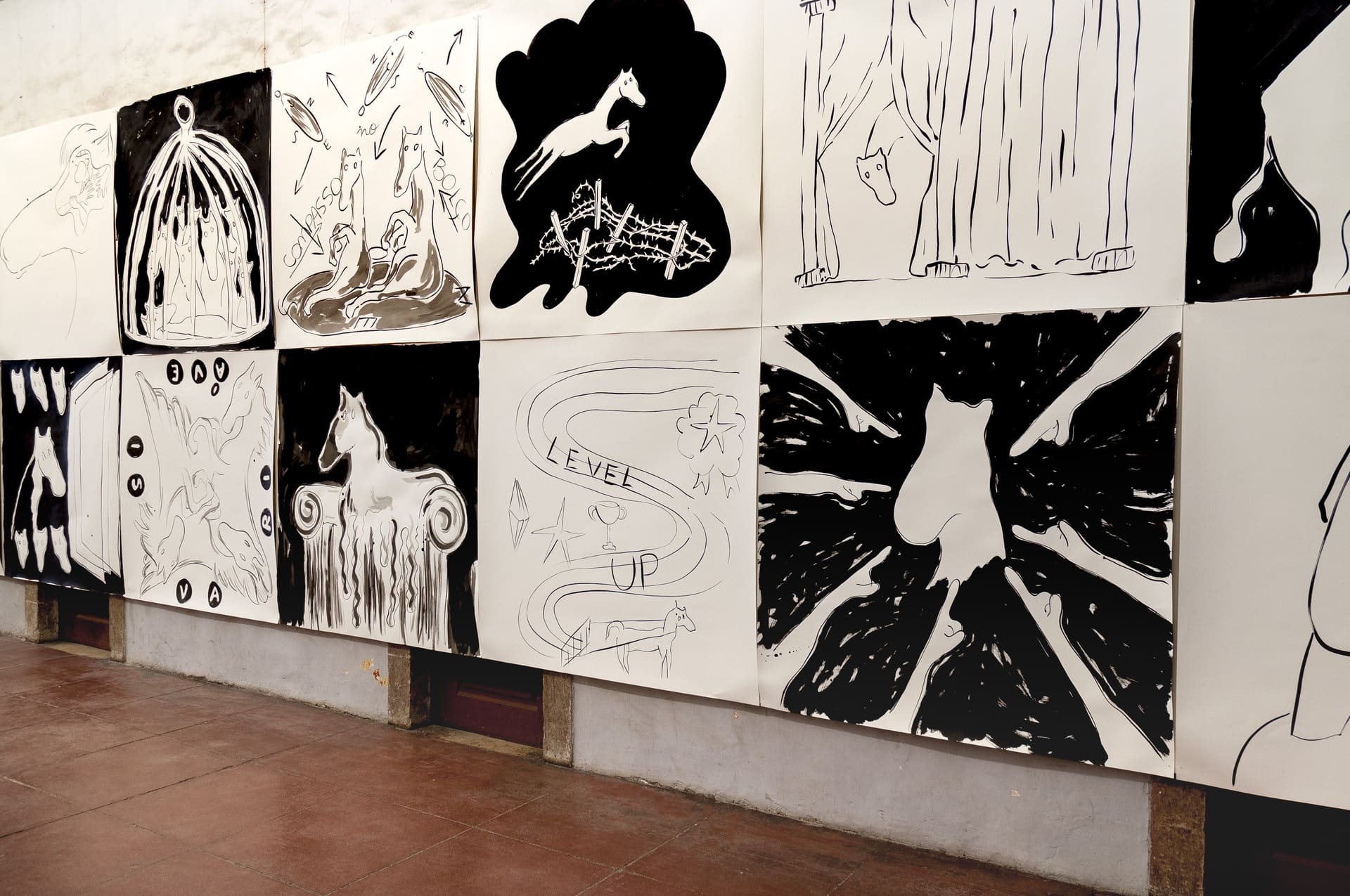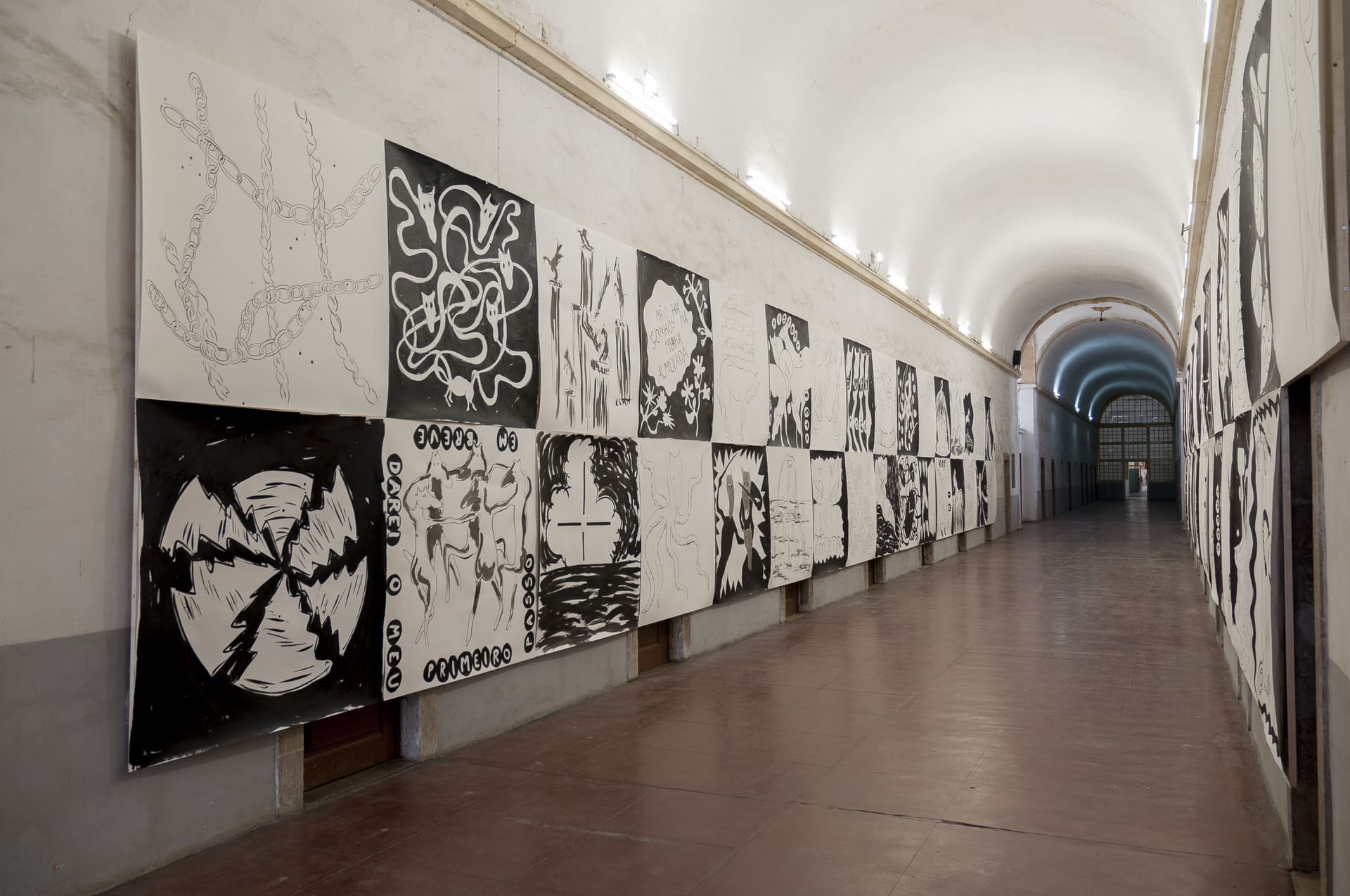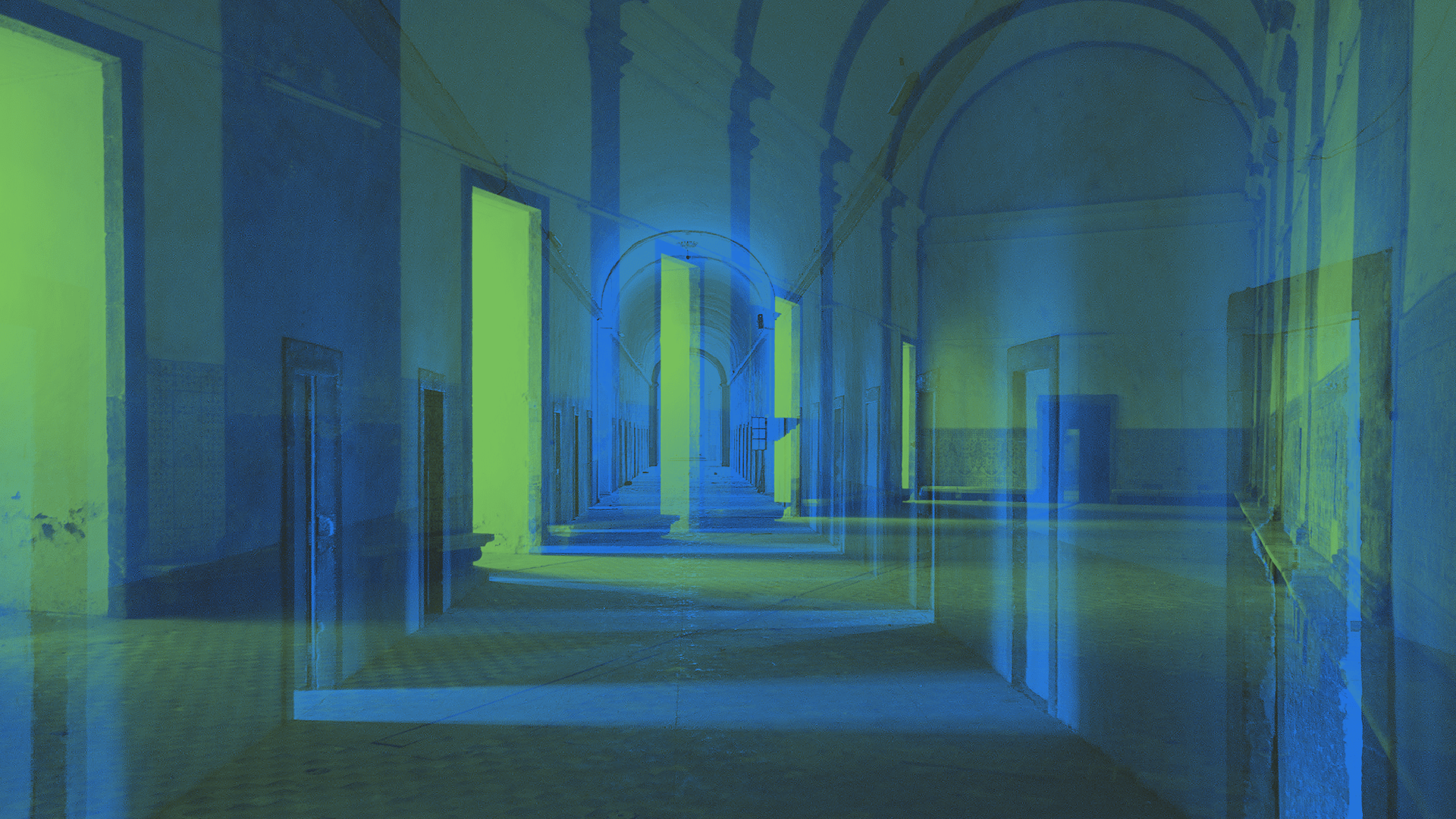Priscila
Fernandes
Priscila Fernandes
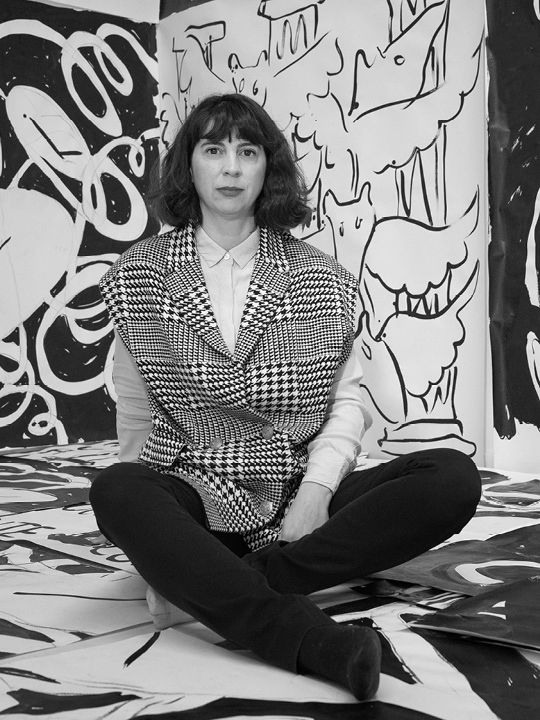


Portugal, 1981
Priscila Fernandes (Coimbra, Portugal, 1981) focuses her work on the act of playing as an “edifying macro-pedagogical social process” through a prolific artistic production that intertwines painting, drawing, installation, photography, video and book publications. Based on her interest in the themes of education, play, and the dialectics between work and leisure, her work forges speculative and fictional relationships with the History of Art.
In her work, there is a frequent encounter between allusions to figures from the European pictorial tradition and speculative propositions about contemporaneity. Through an approach that aligns a repertoire informed by history with a fictional character, she raises questions about the relationship between production time and idleness and the idea of individual and collective freedom — especially in the context of precariousness, the commodification of time and the threat of violence hanging over contemporary societies.
How many horses does it take to change the world?
63 India ink drawings on 300 g watercolour paper
With the support of the Mondriaan Fonds (NL).
Courtesy of the artist.
In this work commissioned by the Biennial with the support of Mondriaan Fonds (NL), the artist Priscila Fernandes uses her playful language to subvert symbols related to the idea of power. In a dialogical correspondence with Western iconography, the artist uses the image of the horse and the pedestal to formulate a satire on the structures that socially and ideologically organise contemporary life (work, prison, school, etc.). Traditionally related to the imagery of domination, heroism, authority and ostentatious force, the horses featured in Priscila Fernandes' work are freed from these connotations. With their almost humanlike condition, the horses dance and play the tambourine, bathe in flowing fountains and wear sheets to imitate ghosts, like children. In short, they act out a range of activities that, in human reality, are part of the privileged leisure hours (those to which not everyone has access). As in the popular joke, How many horses does it take to change the world? points to the absurdity of existence and the rules that condition it, to play as a space for social criticism, and to leisure as a necessity of human life.
Priscila Fernandes lives in the Netherlands. She is the director of the art degree programme BEAR (Base for Experiment, Art and Research) at ArtEZ University of the Arts and of the art production studio Kunstwerk Kolderveen. Priscila Fernandes has held group and solo exhibitions at various national and international institutions, including: Fundação Bienal de São Paulo, Museo Nacional Centro de Arte Reina Sofia, Fundació Joan Miró, Reykjavik Art Museum, Stedelijk Museum Bureau Amsterdam, Fundação MAAT/EDP, Fundação Serralves and Centro Internacional das Artes José de Guimarães. Among her publications stand out The Book of Aesthetic Education of the Modern School (2014), The Waterslide of Abstract Art (2022), Idleness’ Owl (2022), and Rusted Armour, Skin of Dreams (2023).
